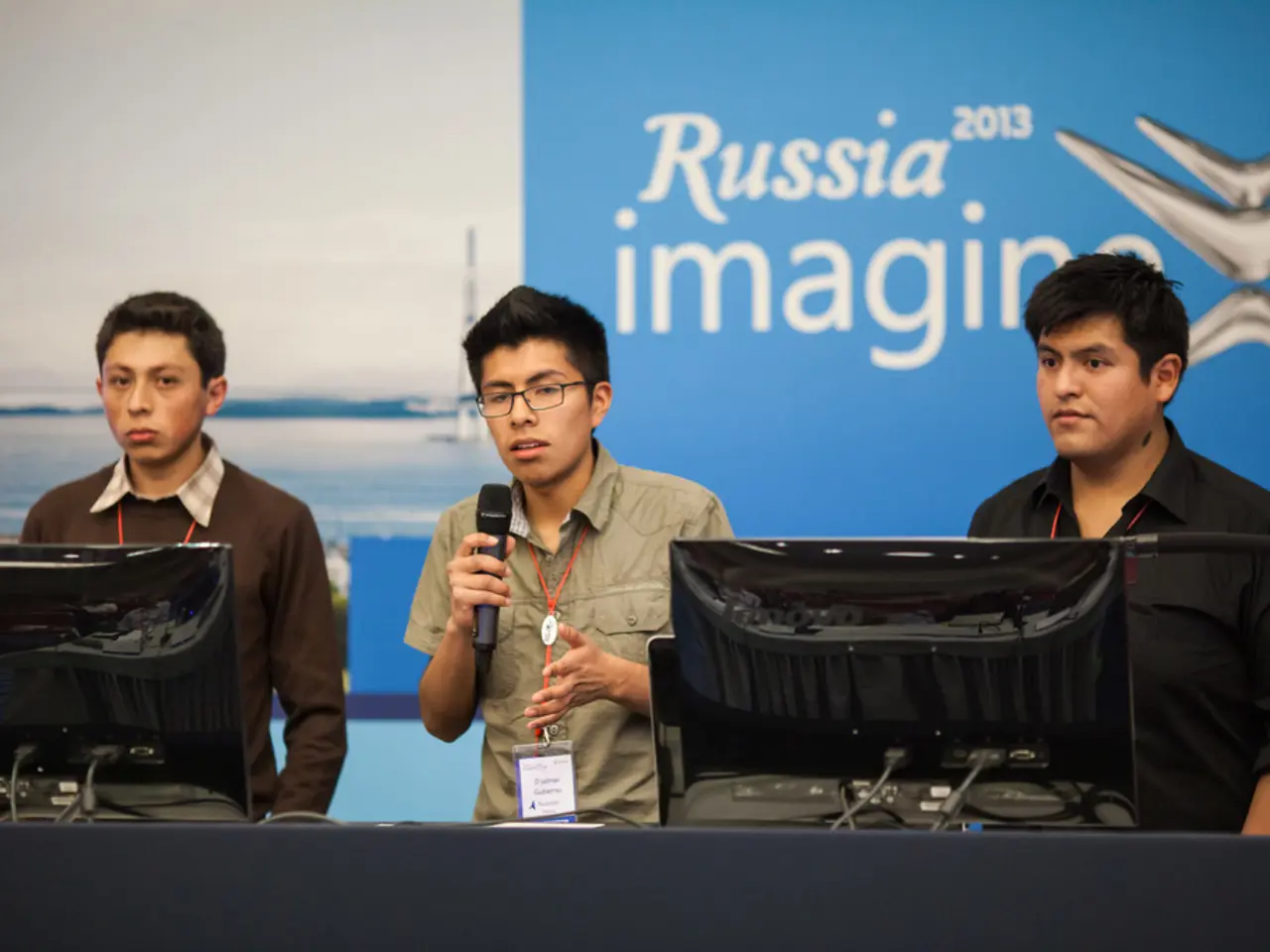China demands an explanation from Nvidia concerning potential security risks due to alleged 'backdoors' in H20 chips
In the ongoing tech rivalry between the United States and China, Nvidia's H20 AI chips have found themselves under scrutiny. The Chinese government has summoned Nvidia over concerns of potential backdoor security risks in these chips [1].
Nvidia, however, has denied having any backdoors in its chips that would allow remote access or control, emphasising its commitment to cybersecurity [2].
The Chinese Cyberspace Administration (CAC) is actively investigating these claims to safeguard its users' data and network security. The inquiry partly stems from U.S. legislative proposals aimed at requiring AI chipmakers, including Nvidia, to incorporate technologies verifying chip location before export [1].
On the U.S. side, lawmakers have proposed bills to impose tracking and verification features on exported advanced chips to China, although no laws have yet been passed [2]. These proposals have fueled Chinese fears about embedded monitoring in U.S. technology, intensifying mutual scrutiny.
Rep. John Moolenaar (R.-Mich.), who chairs the House Select Committee on China, has also objected to the lifting of the ban on the H20 chips. In a letter to Commerce Secretary Howard Lutnick, he stated that the Commerce Department must hold the line and not let the Chinese Communist Party use American chips to train AI models that would power its military, censor its people, and undercut American innovation [3].
The latest episode is another instance of the tech rivalry between the two nations, with businesses dealing with government concerns over market access and national security. Jensen Huang, the CEO of Nvidia, made the announcement of resumed sales in Beijing earlier this month [4].
| Aspect | Chinese Government | Nvidia's Position | US Government | |---------------------------|-------------------------------------------------------------|------------------------------------|-------------------------------| | Concern | Potential backdoor security risks in H20 chips | Denies existence of backdoors | Proposes tracking requirements for chip exports | | Action | Summoned Nvidia to explain and provide proof | Provides denials and stresses cybersecurity | Legislative proposals pending, no laws passed | | Underlying Issue | Protection of user data, network security, and sovereignty | Emphasis on chip integrity and security | Preventing unauthorized tech smuggling and control |
Thus, while no confirmed evidence publicly demonstrates actual backdoors in Nvidia's H20 chips, the security concerns remain a significant issue on both sides, with active regulatory and diplomatic responses ongoing.
[1] Associated Press, Tang (2021). China summons Nvidia over security concerns about AI chips. [online] Available at: https://apnews.com/article/business-china-us-politics-technology-ai-518ced65a5c972d2c526411d678d5491
[2] Associated Press, Tang (2021). US lawmakers call for tracking capabilities on U.S. advanced chips sold overseas. [online] Available at: https://apnews.com/article/business-china-us-politics-technology-ai-518ced65a5c972d2c526411d678d5491
[3] Associated Press, Tang (2021). Moolenaar objects to lifting of ban on Nvidia's H20 chips. [online] Available at: https://apnews.com/article/business-china-us-politics-technology-ai-518ced65a5c972d2c526411d678d5491
[4] Associated Press, Tang (2021). Nvidia resumes sales of H20 chips in China. [online] Available at: https://apnews.com/article/business-china-us-politics-technology-ai-518ced65a5c972d2c526411d678d5491
- The Chinese government is actively investigating claims about potential backdoor security risks in Nvidia's H20 AI chips, a move primarily driven by US legislative proposals.
- Nvidia has vehemently denied the existence of backdoors in its H20 chips, emphasizing its commitment to cybersecurity and chip integrity.
- The US government, on the other hand, is considering legislative proposals that would impose tracking and verification features on exported advanced chips to China.
- These ongoing tit-for-tat legislative proposals have fueled Chinese fears about embedded monitoring in US technology, leading to mutual scrutiny.
- In a letter to Commerce Secretary Howard Lutnick, Rep. John Moolenaar objected to the lifting of the ban on the H20 chips, expressing concerns about the Chinese Communist Party's use of such chips.
- The ongoing tech rivalry between the US and China has extended to businesses, with government concerns over market access and national security coming to the fore.
- Jensen Huang, the CEO of Nvidia, recently announced the resumption of sales of H20 chips in Beijing.
- In the midst of this tech rivalry, the protection of user data, network security, and sovereignty are significant issues for both governments, with active regulatory and diplomatic responses.
- The ongoing investigation and concerns about Nvidia's H20 chips highlight the interplay between technology, economics, politics, policy-and-legislation, general-news, and the environment, especially in the context of immigration, government, California, Los Angeles, health, cybersecurity, data-and-cloud-computing, and business.




